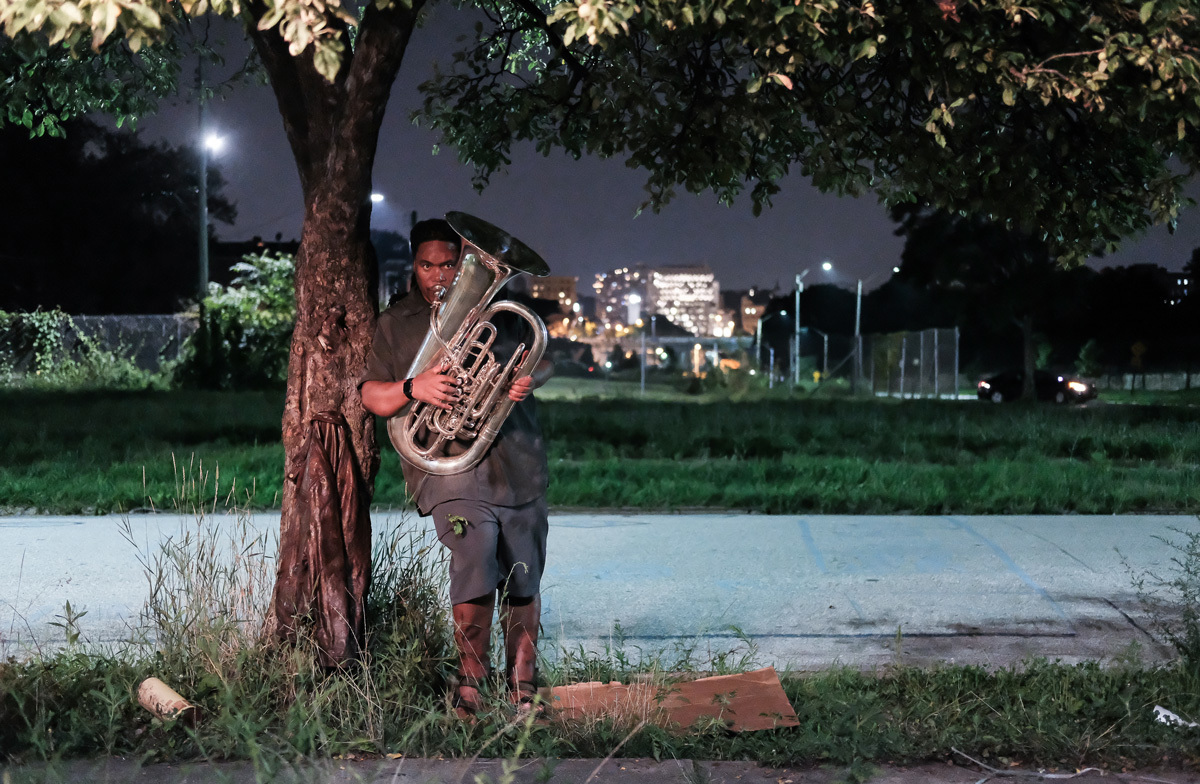
What began as a film about arts education in the country being under-appreciated and under-funded turned into a documentary about a Baltimore native with a remarkable story. As a child living on the streets in West Baltimore, Richard Antoine White defied the odds and became the first African American to earn a doctorate in music for tuba performance.
Local filmmakers David Larson and Darren Durlach, of the Baltimore-based production company Early Light Media, found White during research for their original film and felt that White’s story was just too good to not share. R.A.W. Tuba is a documentary detailing White’s life will be screening it at the Baltimore School for the Arts (BSA) on February 8.
“During the first minute of conversation, we knew Richard was special,” Durlach recalled. “The very simple, non-nuanced story about Richard is his educational journey. That’s what initially drew us in. When you hear that a kid was basically eating out of trash cans in Sandtown and has gone on to become a professor at a university and is well-respected in a symphony orchestra, there’s something there.”
White’s story begins like most young, black men in Baltimore—he grew up in poverty with a parent that suffered with addiction and was had to survive a life unsuitable for a small child. He was found at the tender age of four, shivering in the vestibule of an apartment building and was taken his grandparents. After that day, he took hold of his destiny and did all he could to make sure that he succeeded in life. But his dreams weren’t exactly what he planned.
“I was planning to go to Carver Vo-tech and to be a carpenter and a football player,” he said. “I broke my hip, so that was the end of Carver and being a carpenter. I thought, well I have this tuba, so I picked up the sousaphone and went to the school for the arts—I had no research and no knowledge.”
Chris Ford, a teacher at the time and is now the director of BSA, recalls a big kid on crutches with a plastic tuba coming into the school demanding to audition on the wrong day.
“He was not the normal sort of person to walk in the door,” Ford recalled. “My reaction was, ‘What is this story here?’ I’m glad I took the time to find out because look what happened. I’m really grateful that he had that insight. It showed that he really wanted it.”
The thing that really attracted Ford to White was his determination—it was like none he’d ever seen. After learning more about White’s background, he knew that the transition to BSA would not be an easy one, but was very impressed by the student’s will to succeed.
“When he got here, he was actually behind the curve on a number of levels,” Ford said. “The thing that was remarkable about Richard was that he was able to say, ‘Here I am, here’s where I want to go, tell me how to get there, and I’ll do the work.’ He threw himself into the work in a really remarkable way.”
That drive propelled White to earn a scholarship to the Peabody Institute and later pursue his doctorate and join the New Mexico Philharmonic Orchestra as a principal tuba player. The documentary goes into the ups and downs of White’s journey, even allowing viewers to catch a glimpse of him revisiting his childhood memories in West Baltimore..
“I was remembering where people lived, I saw a fountain that I used to bathe in, and what stores used to be there,” he said. “We randomly see this lady and she says, ‘How do you know that’s a shoe store? That hasn’t been a shoe store in 30 years, who are you?’ I told her who I was and she verified everything that I remembered as a child growing up on the streets.”
Durlach says that this film is not just about White’s specific journey as a tuba player, but it emphasizes the importance of mentorship and cultivation.
“There were moments that he wanted to quit,” he said. “And at each of those moments, he had a mentor that would not give up on him, and it pushed him. I think the real story here is not necessarily that through sheer will and determination this kid forcibly changes his life circumstances, I think it’s really a perfect case study of ‘it takes a village.’”
